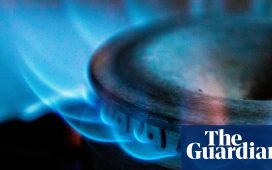The boss of one of Europe’s biggest energy companies has warned that higher gas and electricity prices are here to stay and consumers should not expect them to return to levels seen before Russia’s invasion of Ukraine.
Anders Opedal, the chief executive of Norway’s state oil company Equinor, said factors including windfall taxes and the large sums energy firms must invest to move from fossil fuels to greener alternatives mean bills are likely to remain elevated.
In October, the Guardian reported that the world’s biggest oil companies, including Shell and BP, made profits of nearly £150bn in the first nine months last year, as the war in Ukraine pushed up energy prices to near-record highs.
While in recent weeks wholesale gas prices have returned to pre-Ukraine war levels, Opedal said that with the Russian war prompting a “rewiring’ of the energy system, bills would not return to historic levels of an average of about £1,300 annually.
Under the government’s energy price guarantee, energy bills in the UK are currently almost double that figure, with the typical household paying about £2,500 a year, rising to £3,000 a year from April.
“We have seen a rewiring of the whole energy system of Europe,” Opedal told BBC Radio 4’s Today programme. “We need more renewables. This will require a lot of investment and these investments need to be paid for. I would assume energy bills will [ultimately] be slightly higher than in the past but not as volatile as today.”
He added: “We need to treat energy as something that is not abundant. We have had a lot of cheap energy in the past and we probably wasted some of it. So we need to make sure we’re making the right investments now [and] everyone wants to use as little energy as possible.”
Opedal said the UK’s windfall tax on energy firms, which has risen from 25% to 35% this month and will remain in place until March 2028, was “affecting how we judge each project” in the UK.
“We have to take into account what is the tax level compared to all the other risks,” he said. “Will the tax level change again and how will that impact our projects. And is the project robust enough to tolerate another tax change and so on. We need to put that into the equation when making the decision.”
In June, the British Gas owner, Centrica, signed a major supply deal with Equinor to shore up its energy supplies. The three-year deal took Centrica’s total supply deal with Equinor to more than 10bn cubic metres a year, about 12% of Britain’s total gas demand.









